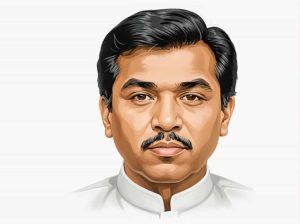The role of the muezzin in Islam is of great importance. A muezzin is the person who calls Muslims to prayer known as the adhan. This call reminds the faithful to perform their daily prayers (salah) which are a fundamental part of Islamic practice.
The first muezzin in Islam was Bilal ibn Rabah a close companion of Prophet Muhammad (peace be upon him). His story is one of faith perseverance and devotion making him one of the most respected figures in Islamic history.
Who Was Bilal ibn Rabah?
1. His Early Life
Bilal ibn Rabah was born in Mecca in the late 6th century. He was of Abyssinian (Ethiopian) descent and was enslaved in Mecca. His mother Hamamah was also a slave.
Despite his status Bilal was known for his intelligence strong character and deep spirituality. When he heard about Islam he embraced it wholeheartedly even though it led to severe persecution.
2. His Persecution for Embracing Islam
Bilal was among the first converts to Islam accepting the message of Tawhid (monotheism) brought by Prophet Muhammad. However his conversion angered his owner Umayyah ibn Khalaf a powerful Qurayshi leader.
Umayyah tortured Bilal in an attempt to force him to renounce his faith. He was beaten dragged through the streets and placed under the scorching sun with a heavy rock on his chest. Despite this suffering Bilal remained firm and continued to say “Ahad Ahad” (meaning “One One” in reference to Allah).
His resilience and devotion became a symbol of faith and endurance in Islam.
3. His Freedom and Close Relationship with Prophet Muhammad
Bilal was eventually freed by Abu Bakr As-Siddiq one of Prophet Muhammad’s closest companions. After his freedom Bilal became one of the most trusted and beloved companions of the Prophet.
His deep melodious voice made him the perfect choice for an important role in the growing Muslim community—the first muezzin.
The First Adhan in Islam
1. The Establishment of the Adhan
Before the formal call to prayer was introduced Muslims would gather for prayer based on time estimations. To organize prayer times more effectively Prophet Muhammad consulted his companions. Several suggestions were made including the use of a bell (like Christians) or a horn (like Jews) but these were not adopted.
One night Abdullah ibn Zayd a companion of the Prophet had a dream in which he saw a man teaching him the words of the adhan. When he reported the dream to the Prophet he confirmed it as divine guidance and instructed Bilal to proclaim the first call to prayer.
2. Bilal’s Historic Role as the First Muezzin
Bilal climbed to a high place and delivered the first adhan in history:
Allahu Akbar Allahu Akbar (Allah is the Greatest Allah is the Greatest)
Ashhadu an la ilaha illa Allah (I bear witness that there is no god but Allah)
Ashhadu anna Muhammadan Rasul Allah (I bear witness that Muhammad is the Messenger of Allah)
Hayya ‘ala as-Salah (Come to prayer)
Hayya ‘ala al-Falah (Come to success)
Allahu Akbar Allahu Akbar (Allah is the Greatest Allah is the Greatest)
La ilaha illa Allah (There is no god but Allah)
This moment marked the beginning of a tradition that continues in every mosque around the world today.
Bilal’s Role in Islamic History
1. Close Companion of the Prophet
Bilal was not just the muezzin; he was also a close companion and bodyguard of Prophet Muhammad. He accompanied the Prophet on many important journeys including battles and diplomatic missions.
2. Participation in Battles
Bilal fought in key battles such as:
- Battle of Badr (624 CE) – A significant victory for the Muslims.
- Battle of Uhud (625 CE) – Despite challenges Bilal remained committed to defending Islam.
- Conquest of Mecca (630 CE) – After the Muslims gained victory Bilal climbed the Kaaba and called the adhan signifying the triumph of Islam.
3. His Emotional Adhan After the Prophet’s Death
After the Prophet passed away in 632 CE Bilal found it extremely difficult to continue his role as muezzin. The pain of losing the Prophet was too great and he left Medina for Syria dedicating his life to other Islamic causes.
However years later upon visiting Medina Bilal was requested to recite the adhan once more. His voice moved the companions to tears as they remembered the days of the Prophet.
Bilal’s Later Life and Death
Bilal spent his later years in Syria where he continued to promote Islam. He passed away around 640 CE in Damascus and was buried there. His legacy as the first muezzin and his unwavering faith continue to inspire Muslims worldwide.
The Significance of Bilal ibn Rabah
1. A Symbol of Equality in Islam
Bilal’s story reflects the Islamic principles of equality and justice. Despite being a former slave he was given a position of honor proving that in Islam one’s status is based on faith not race or lineage.
2. The Power of Faith and Resilience
Bilal’s perseverance in the face of persecution and torture teaches an important lesson about devotion to Allah and unwavering belief.
3. The Eternal Role of the Muezzin
Today every call to prayer (adhan) around the world is a reminder of Bilal’s first call in Medina. His role established a practice that remains unchanged over 1400 years later.
Bilal ibn Rabah holds a special place in Islamic history as the first muezzin of Islam. His journey from slavery to a position of honor reflects the core teachings of Islam: faith perseverance and equality.
His voice was the first to call Muslims to prayer and his legacy continues in every mosque minaret and prayer call worldwide. His story remains an inspiration for all believers who strive to remain steadfast in their faith just as he did.



